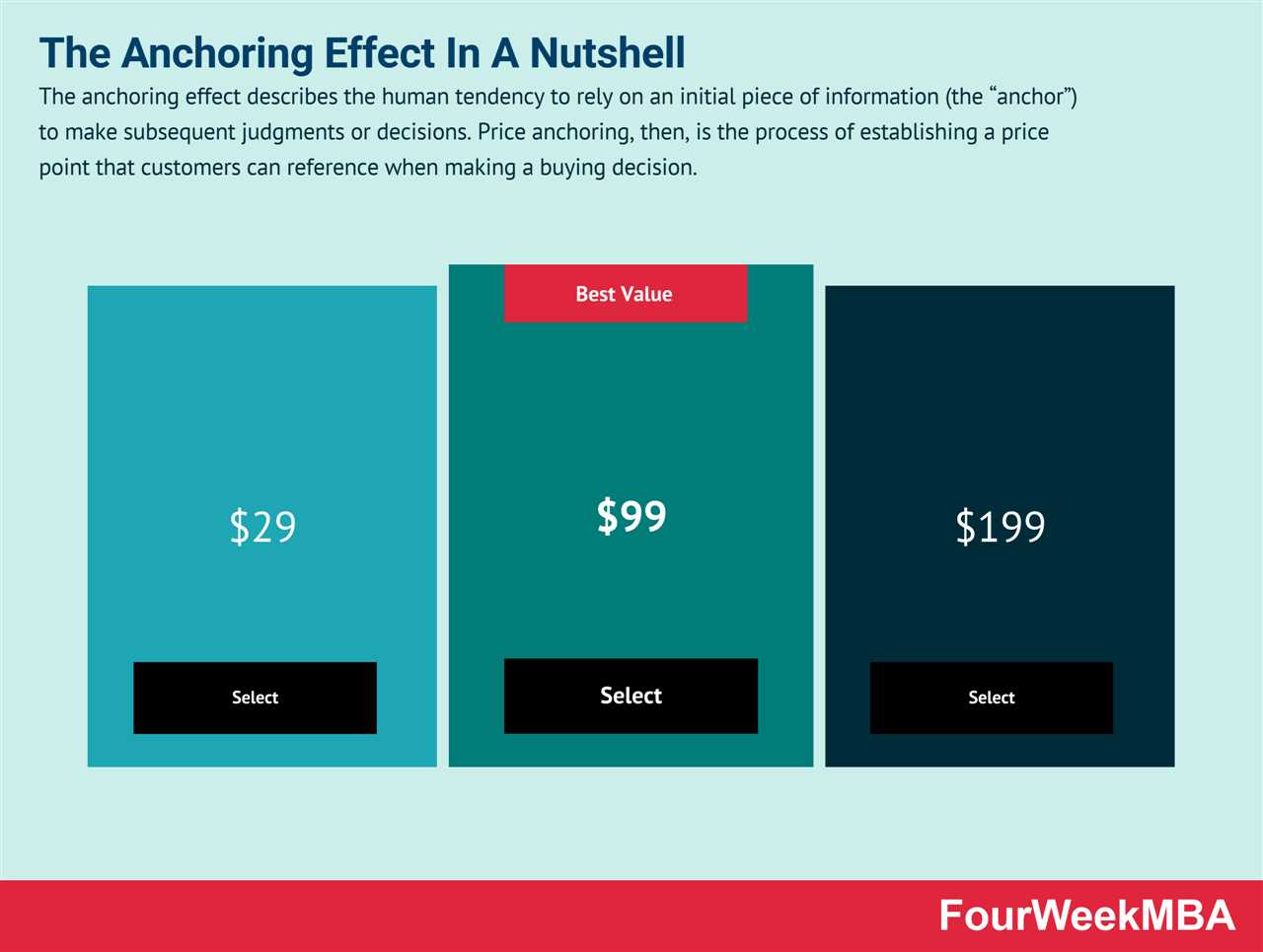Anchoring and Adjustment Definition

The anchor can be any piece of information that is presented to an individual before they make a decision. It could be a suggested price, a starting point for negotiations, or even a random number. Once the anchor is set, individuals tend to make adjustments to that anchor, rather than starting from scratch or considering other relevant information.
This cognitive bias can have significant implications in business and finance. For example, if a seller sets a high anchor price for a product, potential buyers may perceive the actual price as a bargain, even if it is still relatively high. On the other hand, if a seller sets a low anchor price, buyers may perceive the actual price as expensive, even if it is actually reasonable.
| Key Points: |
| – Anchoring and adjustment is a cognitive bias that affects decision-making processes in business and finance. |
| – The anchor can be any piece of information presented before a decision is made, and individuals tend to make adjustments to that anchor rather than considering other relevant information. |
| – This bias can have significant implications in negotiations, pricing strategies, and overall decision-making processes. |
| – By being aware of anchoring and adjustment, business professionals can strive to make more informed and rational decisions. |
This cognitive bias can have significant implications for businesses. For example, in pricing decisions, consumers may anchor their perception of a product’s value based on the initial price they see. If a product is initially priced high, consumers may perceive it as more valuable and be willing to pay a higher price. On the other hand, if a product is initially priced low, consumers may perceive it as less valuable and be less willing to pay a higher price, even if the actual value of the product is the same.
Additionally, businesses can use anchoring and adjustment to their advantage in negotiations. By strategically setting an anchor that is favorable to their position, businesses can influence the other party’s judgments and potentially achieve more favorable outcomes.

Emily Bibb simplifies finance through bestselling books and articles, bridging complex concepts for everyday understanding. Engaging audiences via social media, she shares insights for financial success. Active in seminars and philanthropy, Bibb aims to create a more financially informed society, driven by her passion for empowering others.
